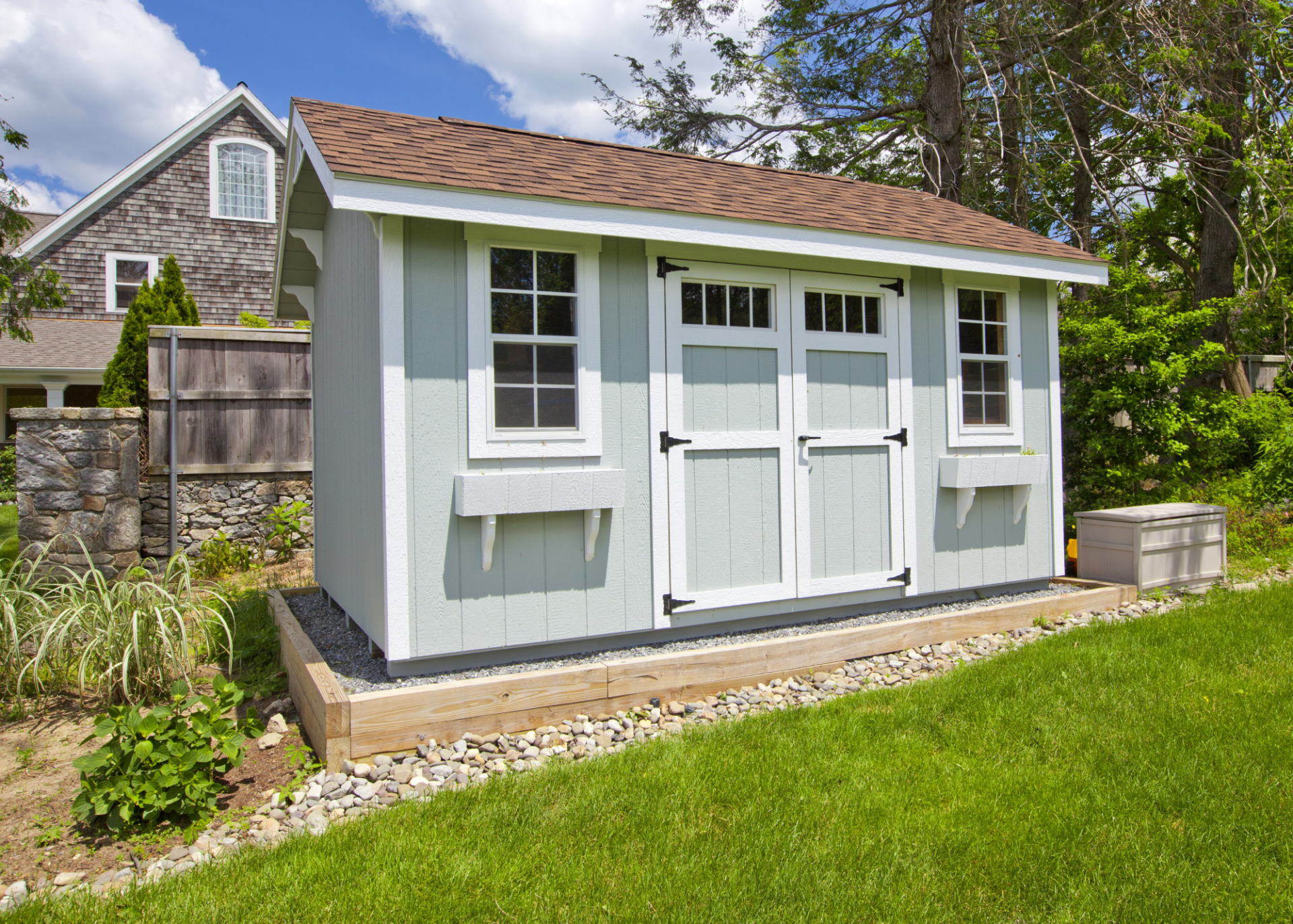A shed can be a great addition to your property. It’s an excellent way to store all of your tools and equipment and can even help keep them organized. The price of building a shed varies depending on how large you want it, the type of materials you choose for construction and whether or not contractors are involved in the project.
Foundation
The foundation is one of the most important aspects of a shed, as it’s what will help your structure stay upright. There are three main types:
Concrete slab: This is a heavy-duty foundation made from concrete, often poured over gravel or sand to add strength and support (you can also use concrete blocks for this purpose). The advantage of using this type of foundation is that it doesn’t move around as much if you’re building in an area with sandy soil or lots of wind. However, it tends to be more expensive than other options.
Wood frame: A wood frame can be built atop another flat surface, such as another wooden beam or concrete slab. However, certain materials need special treatment before being used for this purpose (such as red cedar). So, be sure to check before purchasing materials if you plan on building with any unusual woods.
All in all, the average cost of a foundation should range somewhere between $4 to $16.
Size of the shed
The size of the shed is a very important factor that affects the cost of a shed. The size of the shed will be determined by how much space you need and what features you want in it. You can choose from different sizes depending on your needs. If you plan to use it as a storage area for your garden tools, then consider building a smaller one so that you don’t waste money on an extra-large structure when all you need is room for your tools.
If many people access this storage area, then make sure that it has enough shelves or hooks where they can put their equipment away neatly when not in use. It also helps if there are windows so that light can enter the area and everything looks brighter inside. In general, people tend to shell out somewhere between $1000 to $8000 while building their sheds.
Custom features
Custom features can add a lot of value to your shed. They are usually necessary for specific uses, such as storage or for equipment and tools. However, custom features may not be necessary if you are simply planning to use the shed as an outdoor storage area for common items like gardening tools and rakes, lawn mowers and other landscaping tools.
If you do decide on having custom features, it is best that you plan ahead so that they are included in the original design of your shed. Your contractor will provide you with several options on what kind of customizations they offer at no extra cost or with an additional fee based on their skillset or level of expertise required for your project.
Customization options include: adding ventilation windows; installing floor drains; creating doorways with glass panes (for natural lighting); installing shelving units inside; building in tool racks/hooks; adding electrical outlets/lights throughout; building extra-wide doors/windows; making extra-tall ceilings.
The cost of customization can be as little or as high as per your preference.
Interior Finishes
There are a few different types of interior finishes that you’ll need to consider for your structure. The most popular options include wood, vinyl, and composite. Each material has its own benefits and drawbacks, so it’s important to know what they are before deciding.
Vinyl is a great option if you want something flexible and easy to clean. It can be used in place of any other interior finish type (wood or composite), which means that it won’t compromise your budget as much as other materials might. However, be aware that vinyl tends not to last as long as either wood or composite—it may begin peeling away after just a few years!
Wood is another common choice for sheds because it looks beautiful when stained or painted. The right color and texture work well with almost any design style imaginable. Besides, there are many varieties available, including cedar, pine, spruce, redwood, western hemlock, white pine, etc.
Typically, you can end up spending as little as $100 on finishes and can even go all the way up to thousands of dollars.
Electrical
In addition to the cost of material, you should also consider how much it will cost you to have an electrician install your shed. Electrical work can be expensive in general, but it is especially so for sheds because you cannot install wiring through standard outlets. Instead, you must run wires from your home’s electrical panel to that of the shed itself. This process may require hiring a professional electrician.
In addition to these costs, some other factors can also affect the overall price of installing electricity in your new shed:
• The size and complexity of your new structure may play a role; large buildings tend to be more expensive than smaller ones because they require more time and labor during installation.
• The location of your shed can have a big impact on how much it costs to install electricity. If you live in an area that is prone to natural disasters or other emergencies, then having electrical wiring installed may be necessary.
In addition, high winds and other issues can cause damage to your shed. If this happens, then you will need to hire a professional electrician to repair any issues before they become a major problem.
Expect the cost of the electrical system installation to range somewhere between $500 to $2500.
Heating and Cooling Systems
Adding a heating and cooling system to your shed will add to the cost. If you have no plans to do so, then it’s best to get an estimate of what it would cost by asking a contractor or talking with friends who have had the same work done.
If you do want heating and cooling, there are several things to consider:
• What type of heating/cooling system? (central air conditioning vs heat pump)
• How much space do I need? If you live in a cold climate but don’t live near enough for central air conditioning, a heat pump might be a good choice as long as there’s room for one in your shed. You can also install ductwork if necessary.
Conclusion
After taking into account all these factors and more, you should be able to get an accurate estimate for your project. Once again: our advice is to hire a professional contractor who has built sheds before because they are less likely than DIYers (do-it-yourselfers) to make mistakes along the way (which would drive up costs). You also won’t have any questions about whether or not the work was done properly.




